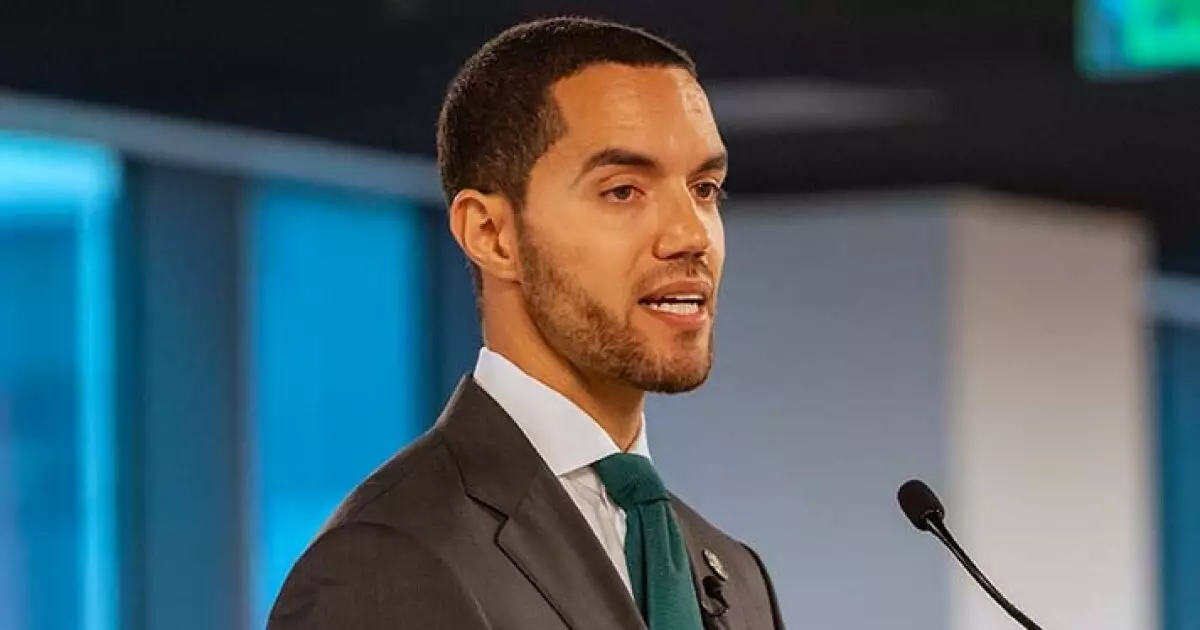The landscape of municipal governance can often be tumultuous, especially when financial accountability comes into question. Recently, Houston’s Mayor John Whitmire publicly criticized City Controller Chris Hollins over the recent solicitation of sponsorships from municipal bond firms for an upcoming investor conference. With sponsorship fees ranging from $10,000 to $100,000, Whitmire’s allegations hint at a deeper issue: the potential for a pay-to-play atmosphere that may compromise the integrity of the city’s financial operations. This conflict raises questions about the ethical boundaries within public service, the transparency of municipal operations, and the responsibilities that elected officials hold for maintaining public trust.
Accusations of Ethical Violations
During a press conference, Mayor Whitmire expressed concerns about the appearance of impropriety linked to the sponsorship requests, branding it a damaging practice to the reputation of Houston. He underscored that the sponsorships could lead to conflicts of interest, especially since Hollins serves on the selection team responsible for choosing bond underwriters. The mayor mentioned that existing bond firms, along with prospective ones, had voiced their worries about potential violations of Securities and Exchange Commission regulations due to these sponsorship practices. Such accusations highlight the critical need for ethical accountability in municipal operations, as the implications of perceived misconduct could be far-reaching—affecting not only Houston’s financial reputation but also public confidence.
In a bid to deflect the allegations, Hollins characterized the mayor’s claims as “baseless,” asserting that sponsorship control ultimately lies with the mayor and the city council, not his office. His stance reflects a broader concern over political posturing—suggesting that Whitmire may be seeking to distract from larger systemic issues, such as Houston’s mounting structural budget deficit. Furthermore, Hollins pointed out that his recent initiatives are not unique in municipal governance, noting that other cities, including Chicago, have similarly conducted investor conferences without corporate sponsorships. This position stresses the importance of understanding the normative practices surrounding such events, which often vary by jurisdiction.
The ramifications of this spat extend beyond mere political squabbles. Houston is experiencing unprecedented scrutiny from national rating agencies concerned about the city’s fiscal management. With a downgrade in credit outlooks from stable to negative by prominent agencies like S&P Global Ratings and Fitch Ratings, there is mounting pressure on both Whitmire and Hollins to demonstrate sound fiscal leadership. The criticism that Houston’s financial strategies have relied too heavily on debt without a corresponding revenue plan resonates deeply, intensifying the demand for a tangible financial roadmap.
Whitmire’s announcement that he has requested an investigation from Houston’s Office of the Inspector General highlights the seriousness of the issue at hand. By taking this step, he aims to ensure that any potential ethical violations are thoroughly examined, indicating that the mayor sees the current dispute as more than a political maneuver—it’s a matter of public trust and financial integrity.
The Broader Context of Sponsorships in Municipal Governance
Corporate sponsorships for municipal events is a complex issue that straddles the line between financial support and ethical conduct. In Houston’s case, the peculiar nature of the sponsorship requests raises questions about how municipalities engage with private firms and the risks posed by blurring these lines. Sponsorship can enhance resources for civic projects, but it can also lead to perceptions of favoritism, especially in the realm of finance, where relationships and contracts are sensitive and impactful.
Indeed, examining similar conferences in other cities can offer valuable insights. Chicago’s choice to abstain from corporate sponsorships indicates a cautious approach that might serve as a model for Houston moving forward and could mitigate the risks of ethical dilemmas that come with such financial relationships.
As the scrutiny of Houston’s financial practices intensifies, both Mayor Whitmire and Controller Hollins must realize the importance of transparency and ethical governance. The emerging conflict not only reflects their differing perspectives but also the critical need for municipal leaders to prioritize the public’s trust above all. Houston stands at a crossroads where clarity and accountability in financial matters are paramount. As they navigate this contentious situation, all parties involved must reaffirm their commitment to ethical governance, making choices that promote integrity while ensuring the city’s financial health remains steadfast. The outcome of this investigation and its subsequent implications will undoubtedly shape the future of Houston’s municipal governance and its approach to ethics in public service.

